March Madness has arrived, and with it Pete Folan has decided that it's high time we celebrate good coaches.
Back in my undergraduate days, when every other self-respecting college basketball fan in the country had already filled out a bracket in preparation for the first day of March Madness, a group of friends and I would just sit back and watch for a while. One of us proposed that we wait to begin our own little tournament until the field of 64 shrunk to 16, that way we could all enjoy any huge first or second round upsets without worrying about our brackets being demolished. Moreover, we could get a feel for each team’s strengths and weaknesses, given that most of us had not seen the vast majority of them in action. The lesson I learned from looking at those Sweet Sixteens year after year now guides my choices in virtually any sports playoff, including the full bracket of 64 68 teams in March Madness: do not pick superstars; pick coaches.
Now, I admit that the best coaches will be quick to give credit to their players when the W’s outweigh the L’s. They are right to do so. Yet the last two decades in just about any major sport reinforce the lesson I picked up in college (remember, oh naysayer, that for every Eric Spoelstra ring there is a whole jewelry store on the hands of Phil Jackson, Joe Torre, Bill Bellichick, and Mike Krzyzewski). Still, I am less interested in proving my point’s worth with statistics than I am in using it to say something – three things, actually – about coaching. Coaches remind us, they teach us, and they learn from us.
***
Good coaches remind us. The late Steve Jobs – himself a Bobby Knight-esque coach of sorts at Apple – remarked to his biographer, “One way to remember who you are is to remember who your heroes are.”1 Jobs was commenting on Apple’s wildly successful “Think Different” campaign of the late 1990s, but his words could have just as easily come out of the mouth of the baseball manager whose club is celebrating the 25th anniversary of a World Series championship or the college football coach who invites back yesterday’s greats in the hope of jumpstarting tomorrow’s dynasty. On one level, I grant that such tactics can amount to little more than publicity stunts designed to sell tickets. College and professional sports, after all, are businesses. On a deeper level, however, good coaches preach We in a culture run amok in I’s. The best coaches know that while the past does not define the present,2 the “we” of any team, is not limited to the names that appear on the current roster. Coaches like this know that we are who we have been.
This can, of course, amount to bad news sometimes, especially when a program would just as soon line-item veto some portions of its past. When it wakes up the echoes, Notre Dame football whispers in the hope that the Faust, Willingham, and Weis eras keep slumbering; in its pantheon of heroes, the Yankees were, for more than a decade, unwilling to make room for 10 (yes, 10) time World Series champion Yogi Berra;3 and now, the cycling world must deal with the admission of Lance Armstrong, its onetime standard bearer, that the doping allegations he has denied for years were, in fact, true.
All of these examples amount to so much straw, though, in the face of the sex and power abuse scandal that is now forever linked to Penn State football. A microcosm of how Penn State has struggled to own (accept? rage against? negotiate?…at some point, words fail) this horrifying reality emerged in the debate regarding the fate of the Joe Paterno statue that stood in front of Beaver Stadium until July 22, 2012. An op-ed piece in the New York Times that appeared while the statue’s removal was being debated, argued that the monument ought to remain right where it is because, “Removing the Paterno statue allows Happy Valley to forget its own compliance in a national crime, to expunge its own culpability in its ruthless pursuit of glory.” Others, understandably, clamored to have the bronze sculpture removed just as soon as the Freeh Report dropped, if not sooner. The disagreement proves yet again what everyone already knows: the past is a tricky beast.
***
Pat Summitt Caught Coaching
When coaches remind us of the past, especially the parts that are convoluted, complex, or downright criminal, they do more than jog our memories. Good coaches teach us. In many ways, this is unsurprising. After all, the classic image of a coach is someone presiding over a team practice, whistle in mouth, dry-erase board and marker in hand, drilling, encouraging, correcting, and improving. In other words, teaching. But I think we do coaches a disservice if we mistake their peerless knowledge of X’s and O’s for the real substance of what they teach their players and fans.
Think about Pat Summitt, the legendary coach of the University of Tennessee’s women’s basketball team. An 8-time national champion and obvious first-ballot hall-of-famer, Summitt resigned her coaching position in April 2012 on account of her having been diagnosed with early-onset Alzheimer’s disease. Her 1,098 career wins (with an astonishingly low 208 losses) might well wind up being part of the second sentence of her obituary one day, hopefully many years from now. If Summit is half the teacher I think she is – and I suspect she’s more likely two or three times the teacher anyone estimates she is – her life’s most noteworthy victories might be yet to come.
That all of this is part of Pat Summitt qua teacher was made clear this past spring. In presenting her with the 2012 Arthur Ashe Courage Award, Vols alum Peyton Manning reminded the assembled crowd, “The best leaders in sports, leaders like Pat… are the ones who use their game to teach you something about life.” Summitt’s lesson is all the more poignant because she has made the courageous decision to teach it in such a public fashion. Illness, especially an illness like Alzheimer’s, which can lead to the death of a personality years or decades before a bodily death, is not something we like to see unfolding before our very eyes, and so we would be just as happy to shoo it away or let it be a private (read: invisible) affair. On the hardwood, Summitt never let an opponent escape that easily. Why should she do so now? She won’t. It’s just not what good teachers do.
***
Finally, good coaches learn from us. The scene that keeps popping into my mind is the climax of the 1986 classic film Hoosiers (which you can see here). With only seconds on the clock Gene Hackman’s character, Coach Norman Dale, diagrams a play that he thinks can win the championship game, and he has decided not to use Jimmy Chitwood, his star player,only as a decoy. As he looks at his huddled players the stern teacher recognizes that something is awry. As Dale’s eyes meet Chitwood’s, he becomes a student. “I’ll make it,” Jimmy says, and with that Dale changes the play. The lesson he taught everyone in that huddle was the same: the best teachers are lifelong students.
The Wizard of Westwood
Though Hoosiers is shot through with Hollywood drama in mind, the lesson it imparts is pure non-fiction. The same message echoes in my ears when I hear a coach give an interview after his team loses a championship game. TV cameras usually cut to him after having shown the locker room celebrations of the winning team, and the sharp contrast between the champagne-soaked hysteria and the funereal silence is easily marked. It’s then that the losing coach congratulates the victors, praises the effort of his own team, and then, shows himself to be what he truly is: a perennial student of the game. Here were the mistakes, the missed opportunities, the blown chances.
Sometimes, good coaches go further, learning particular lessons from special players. My mind turns to high school basketball coach Jim Johnson of Greece Athena High School in Rochester, New York. In February of 2006, Johnson told the team’s student manager, Jason McElwain, that he could suit up for the final home game of the season, though he would get playing time only if Greece Athena were up or down by a significant margin in the final few minutes of the game. Sure enough, with about four minutes to play and his team assured a victory, Johnson substituted McElwain into the game – only to see him score 20 points in three minutes. The video is here, and it is definitely worth watching. And as if this tale were not inspiring enough, one factor made it trend nationwide: McElwain is autistic. Johnson learned an important lesson that day, and he did the rest of the country a favor by sharing it: nothing is more powerful than watching a kid’s dream come true, especially when the world tells that kid to dream small.
***
Good coaches remind, teach, and learn from us. So do good ministers, be they catechists, directors of religious education, classroom teachers, chaplains, priests, religious, deacons, musicians, or some combination of these. In reminding us, they show us that we are part of a community that spans two millennia and boasts an incalculable number of saints and sinners. In teaching us, they show us ways forward where, before, there were just roadblocks. And in learning from us, they demonstrate their own humanity and convince us that being human isn’t so bad after all.
Thanks, coach.
– — – — –
Walter Isaacson, Steve Jobs (New York: Simon & Schuster, 2011), 328. ↩The most philosophical of such coaches know that this line of thinking makes a fatal assumption, namely, that the past is something external to the present (and the future), and thus, can either be used to influence it or disregarded altogether ↩Some would argue – and I would not dispute them – that Berra’s being squeezed out had everything to do with accommodating George Steinbrenner’s Ruthian ego. ↩
Via
Annette Schmeling,
David Hain



 Your new post is loading...
Your new post is loading...

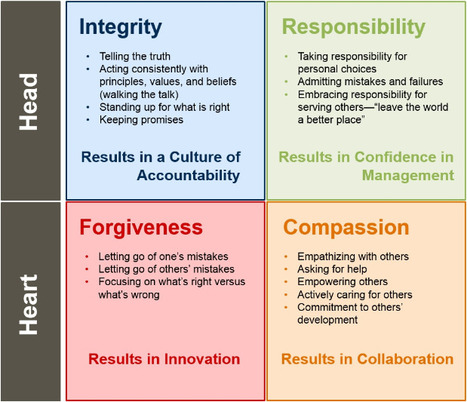

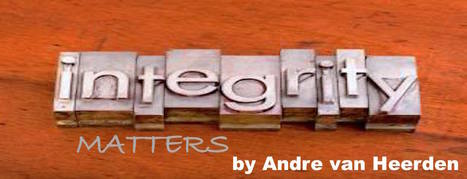
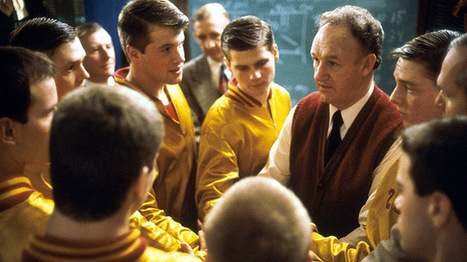


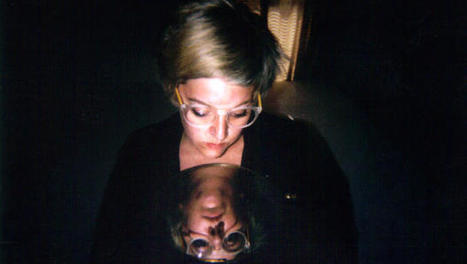


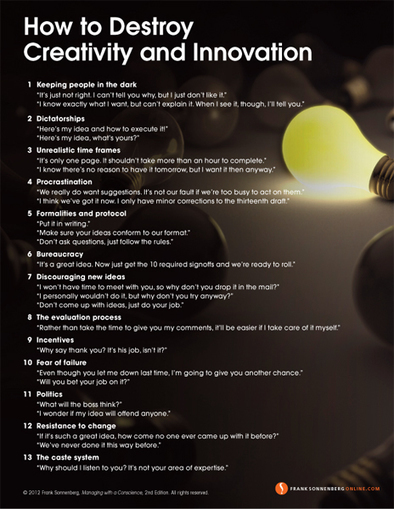








Whether it’s egregious lying, or a lack of accountability, or rampant narcissism or indifference to others, we’re reminded daily of how important character is in our lives and in the successes (or failures) we create and achieve.
Learn more / En savoir plus / Mehr erfahren:
http://www.scoop.it/t/21st-century-learning-and-teaching/?&tag=LeaderShip
http://www.scoop.it/t/21st-century-learning-and-teaching/?&tag=LeaderSkills
http://www.scoop.it/t/21st-century-learning-and-teaching/?&tag=Character